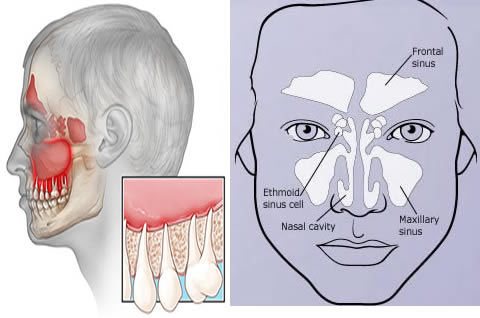Gums Bleeding: Stop The Bleed Now
Bleeding gums can be a troubling and painful experience, affecting not just your oral health but also your overall well-being. The sight of blood after brushing or flossing can be alarming, and it’s natural to wonder what’s causing this issue and how to stop it. In this comprehensive guide, we’ll delve into the reasons behind bleeding gums, explore both natural remedies and professional treatments, and discuss preventive measures to help you maintain healthy, vibrant gums.
Understanding Bleeding Gums
Bleeding gums, or gingival bleeding, is a common symptom of gum disease, which is an infection of the tissues that support your teeth. It’s often a sign that your gums are inflamed, a condition known as gingivitis. The inflammation is typically caused by poor oral hygiene, allowing plaque—a sticky film of bacteria—to build up on your teeth. If left untreated, gingivitis can lead to more severe gum disease (periodontitis), which can cause your teeth to loosen and even fall out.
Other factors can contribute to bleeding gums, including:
- Hormonal Changes: Fluctuations during pregnancy, puberty, or menopause can affect gums, making them more sensitive and prone to bleeding.
- Smoking and Tobacco Use: These habits reduce blood flow to the gums and make it harder for them to fight off infection, leading to increased risk of gum disease.
- Nutritional Deficiencies: Lack of vitamins like C and K can impair the healing of gums and make them more susceptible to bleeding.
- Certain Medications: Some medications, such as those for blood pressure and seizures, can increase the risk of bleeding gums as a side effect.
Natural Remedies for Bleeding Gums
While professional dental care is essential, there are several natural remedies you can use alongside your regular hygiene routine to help manage and prevent bleeding gums:
- Saltwater Rinse: Dissolve a teaspoon of salt in a cup of warm water and swish it around your mouth. Salt has antibacterial properties that can help reduce inflammation.
- Aloe Vera: Known for its soothing and healing properties, aloe vera gel can be applied directly to the gums to reduce inflammation and promote healing.
- Turmeric: Containing curcumin, a powerful anti-inflammatory compound, turmeric can be applied topically or consumed orally to help reduce gum inflammation.
- Tea Tree Oil: With its antimicrobial properties, adding a few drops of tea tree oil to your toothbrush or mouthwash can help combat bacterial infections causing gum disease.
Professional Treatments for Bleeding Gums
While natural remedies can offer support, professional dental care is crucial for effectively treating and preventing bleeding gums. Here are some treatments your dentist might recommend:
- Professional Cleaning: A deep cleaning (scaling and root planing) can remove plaque and tartar both above and below the gum line, helping to reduce inflammation and prevent further infection.
- Antibiotic Therapy: In cases of severe infection, your dentist might prescribe antibiotics to help clear up the infection.
- Surgical Intervention: For advanced gum disease, surgical options like pocket reduction procedures or gum grafts might be necessary to repair damaged gum tissue.
Prevention: The Key to Healthy Gums
Preventing gum disease and the resultant bleeding gums is significantly easier and less costly than treating it. Here are some preventive measures you can take:
- Regular Brushing and Flossing: Maintain a rigorous oral hygiene routine. Brush your teeth at least twice a day and floss once a day to remove plaque.
- Regular Dental Check-Ups: Visit your dentist for check-ups and cleanings every six months. Early detection of gum disease can prevent more severe problems.
- Healthy Diet: Eat a balanced diet rich in vitamins and minerals, particularly vitamin C, which is crucial for gum health.
- Avoid Tobacco and Smoking: Quitting these habits can significantly reduce your risk of developing gum disease.
Conclusion
Bleeding gums are not just a minor symptom but a significant indicator of your oral health. By understanding the causes, utilizing natural remedies, seeking professional treatments when necessary, and maintaining a rigorous preventive routine, you can effectively manage and prevent bleeding gums. Remember, healthy gums are the foundation of a healthy smile, and with the right approach, you can ensure your gums and teeth remain healthy for years to come.
What is the primary cause of bleeding gums?
+The primary cause of bleeding gums is the buildup of plaque due to poor oral hygiene, leading to gingivitis, an inflammation of the gums.
Can natural remedies alone cure bleeding gums?
+While natural remedies can help reduce inflammation and prevent further infection, they should be used in conjunction with professional dental care for effective treatment of bleeding gums.
How often should I visit my dentist to prevent gum disease?
+Regular dental check-ups and cleanings should be scheduled every six months to prevent gum disease and address any oral health issues early on.
By taking proactive steps towards your oral health, you’re not just stopping the bleed now; you’re investing in a healthier, happier you for the future.

